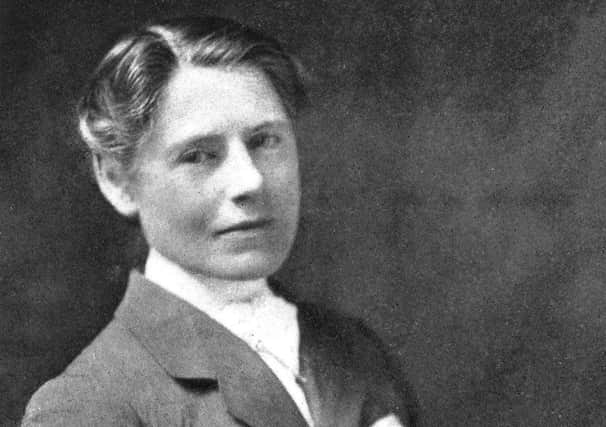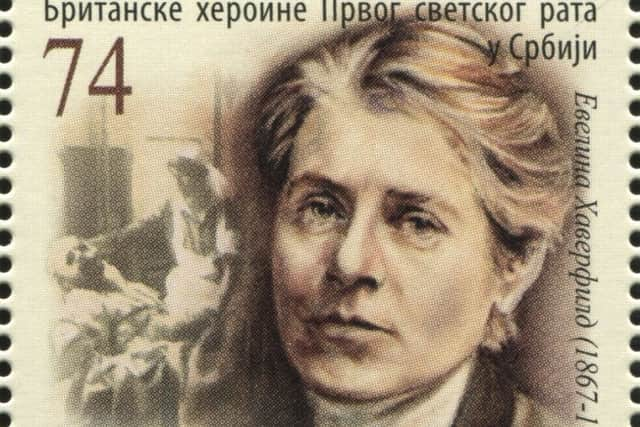The remarkable life of Scottish aid worker Evelina Haverfield


But the remarkable story of this ardent suffragette and brave wartime aid worker, who risked everything for a cause she believed in, makes her one of the most prominent women in Scottish history.
Born on this day in 1867 at Inverlochy Castle, in Kingussie, Evelina Haverfield was the third daughter of William Frederick Scarlett, 3rd Baron Abinger and Helen Magruder.
Advertisement
Hide AdAdvertisement
Hide AdShe married young at age 19, to Major Henry Haverfield and continued to use his name even when, after his death, she re-married his fellow officer John Blaguy.


Evelina was an enthusiastic supporter of the suffragettes and - rather out of keeping for women of the time - took to riding a bicycle as a symbol of freedom.
She was also involved in some of the movement’s more raucous demonstrations and was arrested for hitting a police officer during one such demonstration. “It was not hard enough. Next time I will bring a revolver.” she later mused.
An accomplished horsewoman, Evelina was skilled in outdoor sports, and at the outbreak of war in 1914, she changed tact and moved away from the suffragettes, instead helping rally women to help meet the threat of a possible German invasion of Britain.


Concerned with how women could best help in the event that Great Britain was invaded, Evelina formed the Women’s Emergency Corps in 1915.
In 1915 she volunteered to go abroad with the Scottish Women’s Hospitals for two years, joining Elsie Inglis in Serbia where she served as a hospital administrator.
Her main aim was to provide medical care for wounded allied soldiers but was met by a devastated Serb population, many of which has been affected the country’s a raging typhus epidemic.
Advertisement
Hide AdAdvertisement
Hide AdAfter the UK had defeated the Serbs, Evelina had decided the country was her cause.
A new transport unit was sent to Serbia via Russia, with Evelina its commander.
Her unit drove into the fighting areas, collecting wounded and exhausted soldiers. It earned Evelina a Russian military medal for bravery.
At the end of the war she returned to Serbia as commissioner of the Serbian Red Cross Society in Great Britain to help house orphans.
A year later, aged 52, she caught pneumonia and died. She was buried with full military honours.
Buried in Serbia today, Evelina’s gravestone reads: ‘Hear lies the body of the honourable Evelina Haverfield youngest daughter of William Scarlett 3rd Baron Abinger and of Helen ne Magruder his wife of Inverloky Castle Fort William Scotland who finished her work in Bajina Bashta March 21st 1920 through the war 1914-1920 She worked for the Serbian people with untiring zeal. A straight fighter astraight rider and a most loyal friend. R.I.P’
